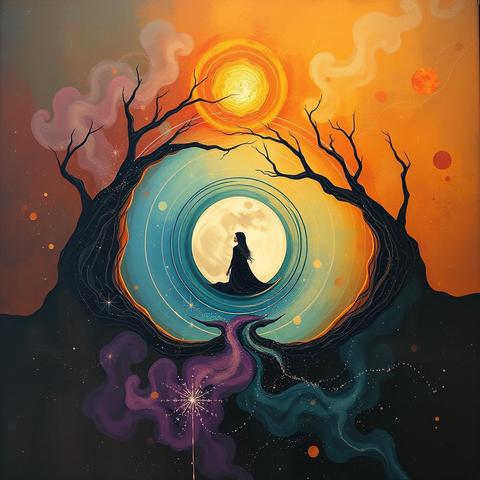Have you ever woken up from a dream feeling utterly bewildered, heart pounding, wondering if the intense emotions you experienced were somehow connected to your waking life? I remember one such dream vividly. I was falling, a terrifying plunge into an unknown abyss, yet strangely, the feeling wasn’t solely fear. There was a thrilling exhilaration mixed in, a sense of surrendering to something larger than myself. It left me pondering the curious connection between falling in love and falling in dreams – two seemingly disparate experiences, yet both capable of eliciting such profound emotional responses. This article will delve into the fascinating contrast between these two states, exploring the symbolic language of dreams, the psychology of love, and the potential insights they offer into our inner selves.
The Psychology of Falling in Love: A Waking Reality

Falling in love is a powerful, transformative experience. It’s characterized by intense emotions, a surge of dopamine and other neurochemicals, and a profound shift in our focus and priorities. From a psychological perspective, falling in love is often associated with:
- Attachment: We crave connection, security, and belonging. Falling in love fulfills this fundamental human need.
- Idealization: We tend to see our beloved through rose-tinted glasses, overlooking flaws and projecting idealized qualities onto them.
- Vulnerability: We open ourselves up to potential hurt and rejection, trusting another person with our deepest emotions and vulnerabilities.
- Euphoria: The intense rush of positive emotions – joy, excitement, happiness – is a hallmark of the experience.
These psychological components contribute to the intense, often overwhelming, nature of falling in love. It’s a rollercoaster of emotions, a journey into uncharted territory.
Falling in Dreams: Navigating the Subconscious Landscape

In contrast to the waking experience of love, falling in dreams presents a much more ambiguous landscape. While the sensation of falling itself is frequently reported, its symbolic meaning is far from straightforward. Dreams are often interpreted as expressions of our subconscious mind, reflecting our anxieties, desires, and unresolved conflicts. Falling in a dream might symbolize:
The Hidden Meanings Behind Falling Dreams
- Loss of Control: The feeling of helplessness and lack of control during a falling dream often mirrors feelings of powerlessness or insecurity in waking life. This could relate to career anxieties, relationship issues, or a sense of being overwhelmed by life’s challenges.
- Vulnerability and Exposure: Falling can represent a sense of vulnerability and exposure. We are literally losing our footing, leaving ourselves open to the unknown. This can reflect fear of failure, self-doubt, or a feeling of being emotionally exposed.
- Spiritual Descent: In some interpretations, falling in a dream symbolizes a spiritual descent – a journey into the depths of the unconscious mind, a process of self-discovery and transformation. This aligns with Carl Jung’s concept of the shadow self, where we confront our darker aspects.
- Emotional Letting Go: Falling can also represent a letting go of something – a relationship, a belief, a habit. It’s a surrender, a release of control, often leading to transformation and growth.
Common Variations and Themes in Falling Dreams
The context of the dream profoundly affects its interpretation. For instance:
- Falling into darkness: This suggests fear of the unknown, anxiety about the future, or a sense of being lost and directionless.
- Falling into water: Water often symbolizes emotions. Falling into water might signify being overwhelmed by emotions, or a need to confront and process them.
- Falling into soft ground: This suggests a more positive interpretation, indicating a sense of security and support even in times of vulnerability.
The Interpretation and Deeper Message of Dreams: Unlocking the Symbolism
Let’s consider a personal anecdote. A patient once described a recurring dream where she was falling from a great height, yet instead of fear, she felt a sense of exhilarating freedom. Through exploring this dream, we discovered it mirrored her decision to leave a stagnant relationship and embrace a new chapter in her life. The “falling” represented letting go of her past and embracing the uncertainty of the future, a choice filled with both fear and excitement.
Dreams, unlike the linear narrative of our waking lives, often communicate through symbolism. The act of falling, therefore, isn’t merely a physical sensation but a potent metaphor. This dream, interpreted in context, revealed a deeper message about personal liberation and empowerment.
Practical Advice for Dreamers: Bridging the Gap Between Dream and Reality
If you find yourself frequently experiencing falling dreams, consider these strategies:
- Keep a Dream Journal: Record your dreams immediately upon waking. This will allow you to analyze recurring themes, emotions, and symbolic elements over time.
- Reflect on Your Waking Life: Consider any stressors, anxieties, or major life changes occurring in your waking life that might be manifesting in your dreams.
- Practice Mindfulness: Mindfulness techniques can help you become more aware of your emotions and thoughts, potentially reducing anxieties that manifest in dreams.
- Engage in Dream Therapy: A dream therapist can help you explore the deeper meanings of your dreams within a safe and supportive therapeutic environment.
Conclusion: Embracing the Mysteries of the Subconscious

Falling in love and falling in dreams, while seemingly disparate experiences, both offer profound insights into our inner lives. Falling in love illuminates our capacity for connection and vulnerability, while falling in dreams unveils the hidden landscapes of our subconscious. By understanding the symbolism and psychology behind these experiences, we can gain a deeper understanding of ourselves, our desires, and our fears. At Dream Therapy Now, we specialize in helping individuals understand their dreams through expert analysis, sleep science, and therapeutic practices. Let us guide you on your path to clarity and transformation. Contact us today to schedule a consultation and begin your journey of self-discovery. We look forward to helping you decipher the enigmatic messages of your dreams and unlock your full potential. Remember, the language of dreams is a powerful tool for personal growth and healing.
Note: While this article provides general information on dream interpretation, it is not a substitute for professional help. If you are struggling with recurring nightmares or disturbing dreams, it is essential to seek guidance from a qualified mental health professional. Dream Therapy Now is committed to providing evidence-based therapeutic approaches to dream analysis and sleep improvement. Contact us for personalized support tailored to your specific needs.
Dive into our blog to discover a wealth of content that will illuminate the significance of your nocturnal adventures and guide you through the labyrinth of dream symbolism. Impeccable Dream hopes this guide was helpful! If you want to see other blog posts about Dreams About Falling, here are some that may be of interest to you.